Computer Science vs. Software Engineering [Comparison Guide]

In this article
- Is There a Difference Between Computer Science and Software...
- Definition
- Programming Language Applications
- Role and Responsibilities
- General Prerequisites: Education, Skills, and Other Requirements
- Salary
- A Day in the Life
- Career Path
- Other Jobs To Consider
- Should I Pursue Computer Science or Software Engineering?
- How To Choose Between Computer Science and Software Engineering
- Computer Science vs. Software Engineering FAQs
The terms “computer science” and “software engineering” are often used interchangeably, but actually refer to two distinct fields. While both involve designing and building software programs for various purposes, there are some critical differences between them.
Confused? You aren’t the only one. In this article, we’ll be exploring the key differences between computer science and software engineering. We’ll compare the educational requirements for each, their respective job prospects, and how their roles and responsibilities differ. By the end of this guide, you’ll better understand which field is right for you.
Is There a Difference Between Computer Science and Software Engineering?
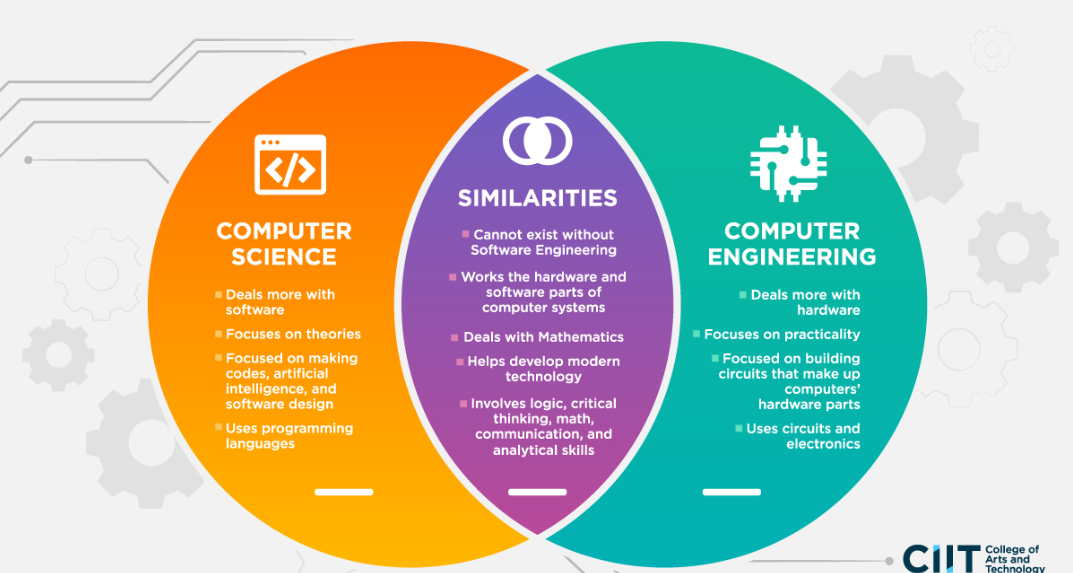
Yes, there is a difference between computer science and software engineering. Computer science is a broader field that involves the understanding and study of algorithms, computer systems, programming, and the application of computer technology to solve problems. Software engineering is a more specific field involving developing and designing software applications and systems, emphasizing engineering principles and practices.
Definition
Let’s look at the definitions of both computer science and software engineering.
What Is Computer Science?
Computer science is the study of computers, their design, development, and application. It involves using algorithms and problem-solving to create software, create systems and applications, and analyze data. It encompasses various topics, including computer architecture, software engineering, artificial intelligence, computer networks, computer graphics, databases, game design, and programming languages.
What Is Software Engineering?
Software engineering is the process of applying engineering principles to the design, development, maintenance, testing, and evaluation of software applications. In other words, software engineering focuses on the development of software that is efficient, reliable, and secure. This involves the application of scientific and technological expertise to create, maintain, and improve the software.
Programming Language Applications
Programming languages are essential for software engineers and computer scientists, allowing them to create and develop complex applications.
What Are the Applications of Programming Languages for Computer Scientists?
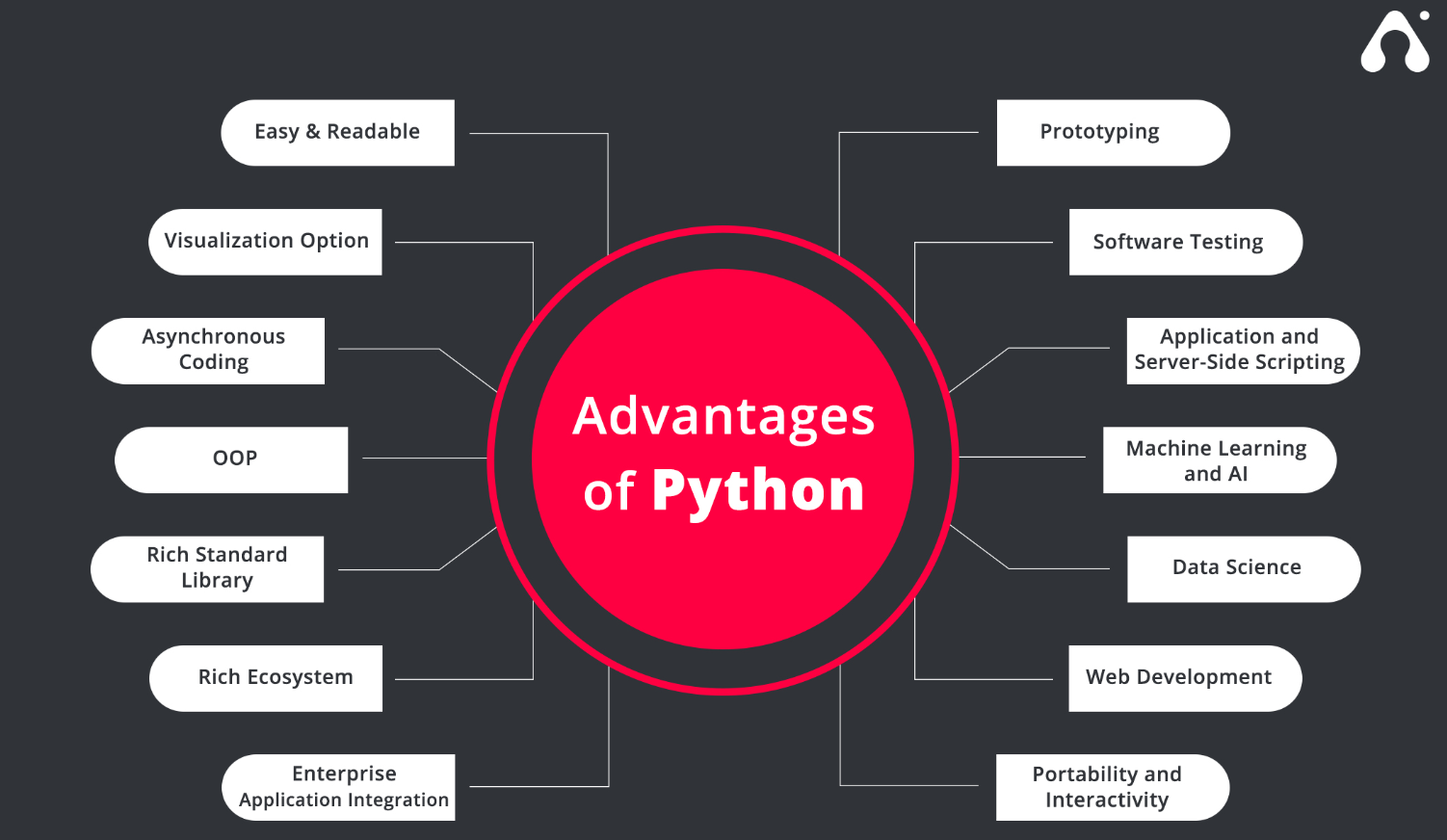
There are a variety of applications for programming languages in computer science. Some of these include automating processes and making them more efficient or developing new programs. Computer scientists use programming languages to write code and tools for other programmers, allowing them to save it so it can be used again later without having to write everything from scratch.
What Are the Applications of Programming Languages for Software Engineers?
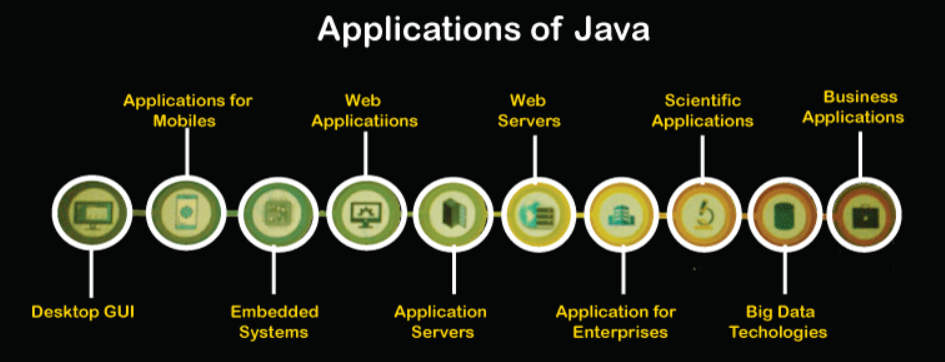
In software engineering, you may use programming languages for research, such as developing artificial intelligence or machine learning algorithms. However, most of the time, programming languages help developers build new features into existing applications.
Programming languages can also be used as a way to learn how computers work and how they process information. When building new features in an app or website, developers can use this knowledge to anticipate how users will interact with these products.
Role and Responsibilities
The role of a computer scientist or software engineer can vary depending on the company they work for. Still, there are some general responsibilities that most people in these positions have in common.
What Does a Computer Scientist Do?
A computer scientist studies the theory of computing, creating and designing computer systems, and developing algorithms and software. They use their in-depth knowledge to solve real-world computing problems and develop new technologies. Additionally, computer scientists design and develop software, hardware, and networks. They might also be involved in research and development, studying data, creating computer models, and developing mathematical algorithms.
What Does a Software Engineer Do?
A software engineer designs and develops computer software. They are responsible for researching, designing, implementing, and software testing. Software engineers also analyze user needs and develop software solutions to meet those needs.
General Prerequisites: Education, Skills, and Other Requirements

To become a software engineer or computer scientist, there are several general prerequisites that you will need to fulfill for each role.
Computer Science
As with any other career path, starting your journey as a computer scientist requires a certain educational background and a specific skill set.
Education
Education is the cornerstone of a successful career in a technical field like computer science. Here’s everything you need to know about the level and type of education required to become a computer scientist:
What Does a Computer Science Degree Include?
A degree in computer science typically includes courses in mathematics, programming, software engineering, database systems, computer architecture, operating systems, artificial intelligence, and computer networks. Additional courses may include computer graphics, web development, security, and engineering.
Can You Become a Computer Scientist Without a Degree?
Yes, you can become a computer scientist without a degree, but before you embark on a course of self-study, you should definitely consider a bootcamp that will teach you the computer science fundamentals, like Springboard’s Software Engineering Career Track Prep Course.
Skills Needed
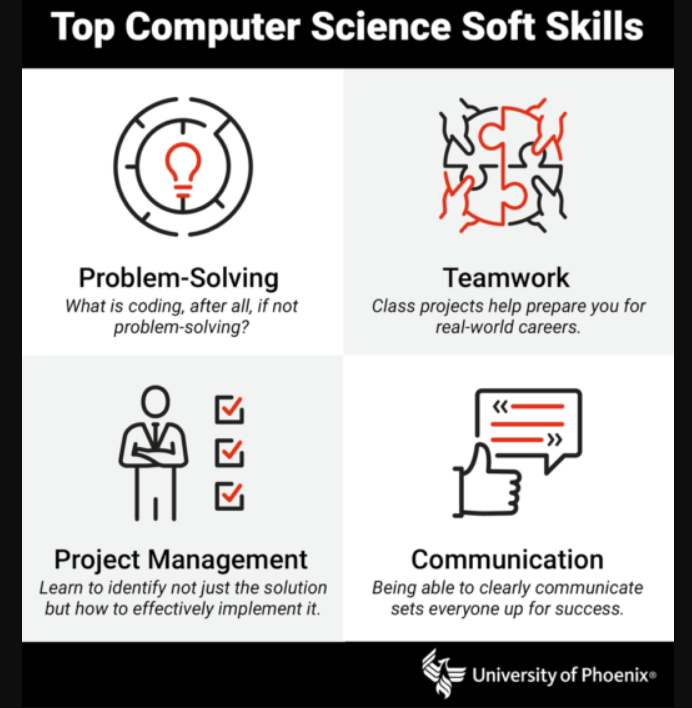
It’s only natural that technical individuals are more inclined towards a computer science career path. But to become a truly outstanding computer scientist, you’ll also need soft skills too.
Technical Skills
To design algorithms and develop programs, computer scientists need a strong understanding of mathematics, such as calculus, linear algebra, and discrete mathematics. Additionally, solid programming skills, such as knowledge of different coding languages, are needed to design, create and maintain software and applications.
Soft Skills
Computer scientists must communicate effectively with other professionals and users, so strong written and verbal communication skills are necessary. They must be able to conduct research and analyze data to develop new and improved software and applications.
Other Prerequisites To Become a Computer Scientist
In computer science, it’s essential to have a passion for learning and an interest in technology. Computer scientists often need to be able to think critically about their work, so it’s also vital that you desire to learn new things. You should be excited about taking on new challenges and enjoy learning from your mistakes.
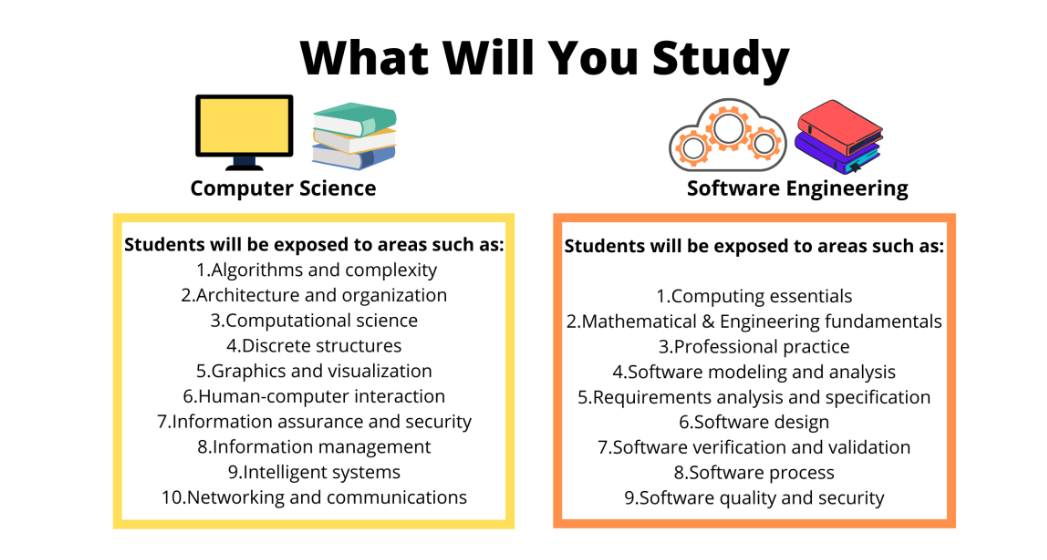
Software Engineering
Here’s all you need to know before starting your software engineering career.
Education
There are many paths to becoming a software engineer. Let’s break down what some of those look like:
What Does a Degree in Software Engineering Include?
Software engineering degrees include courses in programming, software design, software architecture, computer networks, software project management, database management, and a variety of programming languages.
Can You Become a Software Engineer Without a Degree?
Yes, you can definitely become a software engineer without a degree. If you want to become a software engineer, but don’t have a degree, then you should definitely consider a software engineering bootcamp.
Skills Needed
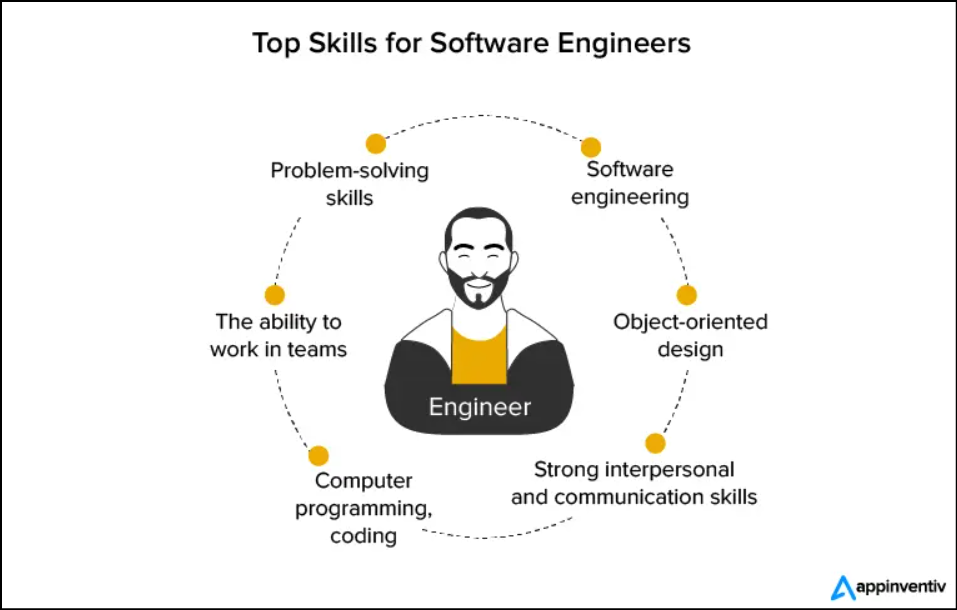
There are certain specific skills you must possess before you become a software engineer. You can learn them with a lot of practice, but be sure to take them into account before you decide to follow this career.
Technical Skills
To become a software engineer, you must possess a good understanding of coding languages like C++, Java, Python, and Ruby, as well as web technologies such as HTML, CSS, and JavaScript. Knowledge of databases and frameworks such as SQL and Node.js is also essential.
Soft Skills
Soft skills—such as communication, collaboration, problem-solving, creativity, and the ability to work in teams—are essential for software engineers. Soft skills enable engineers to effectively collaborate with other team members and stakeholders to ensure successful project completion. Furthermore, engineers must be able to take initiative, manage their time well, stay organized, and have a positive attitude.
Other Prerequisites to Becoming a Software Engineer
If you already know how to code, then there are other things that you should be doing before applying for jobs as a software engineer:
- Have experience working with databases (SQL)
- Know how to use version control systems like Git or SVN
- Have experience with agile development processes like Scrum or Kanban
Get To Know Other Software Engineering Students
Matthew Dillon
Front End Developer at LaunchBadge
Alyssa Menes
Software Engineer at Progyny
Julia Ayres
Software Engineer at Northspyre
Salary
Salary is one of the most significant factors in job satisfaction and can also be a big part of your career path.
How Much Can a Computer Scientist Make?
The salary of a computer scientist can vary greatly depending on the employer, location, and years of experience. According to Glassdoor, the average annual wage for computer and information research scientists is $116,088.
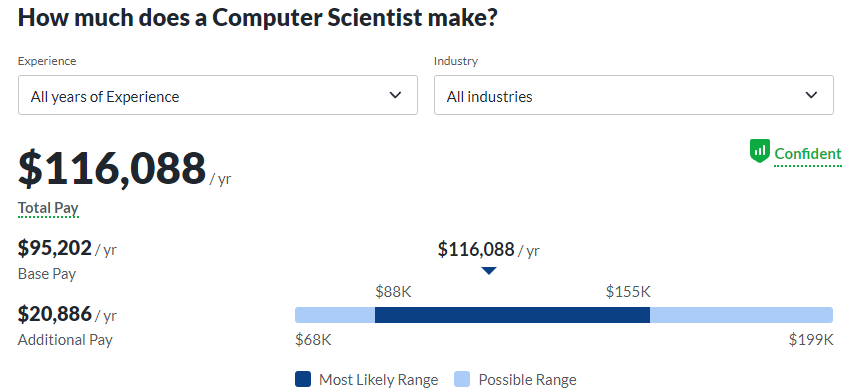
How Much Can a Software Engineer Make?
The average salary for a software engineer in the United States is $105,932 per year.
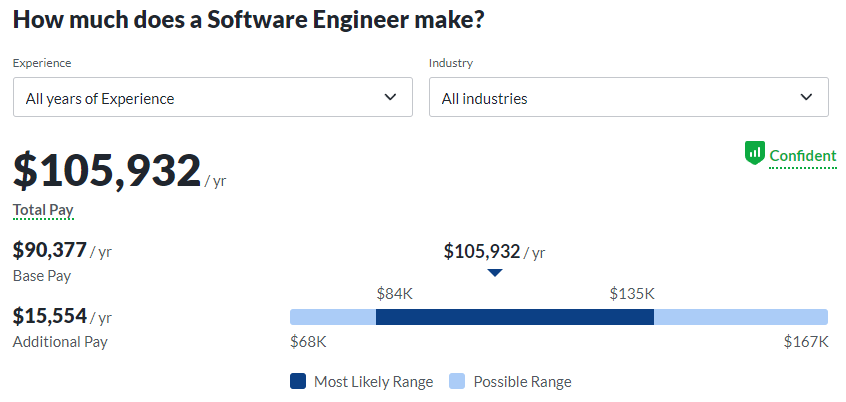
A Day in the Life
A day in the life of a software engineer or computer scientist will be different from one person to the next, but everyone experiences some common elements.
What Does a Typical Day Look Like as a Computer Scientist?
A typical day as a computer scientist will vary depending on the individual’s specific job role. Still, it usually involves developing software, analyzing data, problem-solving, and troubleshooting.
A computer scientist might design algorithms, create applications, or work with large data sets. They could also be involved in machine learning and artificial intelligence projects.
What Does a Typical Day Look Like as a Software Engineer?
On a typical day as a software engineer, you might be writing code to make a website work better, or a mobile app runs faster. On other days, you might work with your team to ensure that new features are being built to make them accessible to users.
Sometimes, it’s about ensuring that all of the systems are running smoothly so that your customers have a good experience using our product.
Career Path
Computer science and software engineering careers are often quite similar, but they have some critical differences.
What’s a Typical Career Path for a Computer Scientist?
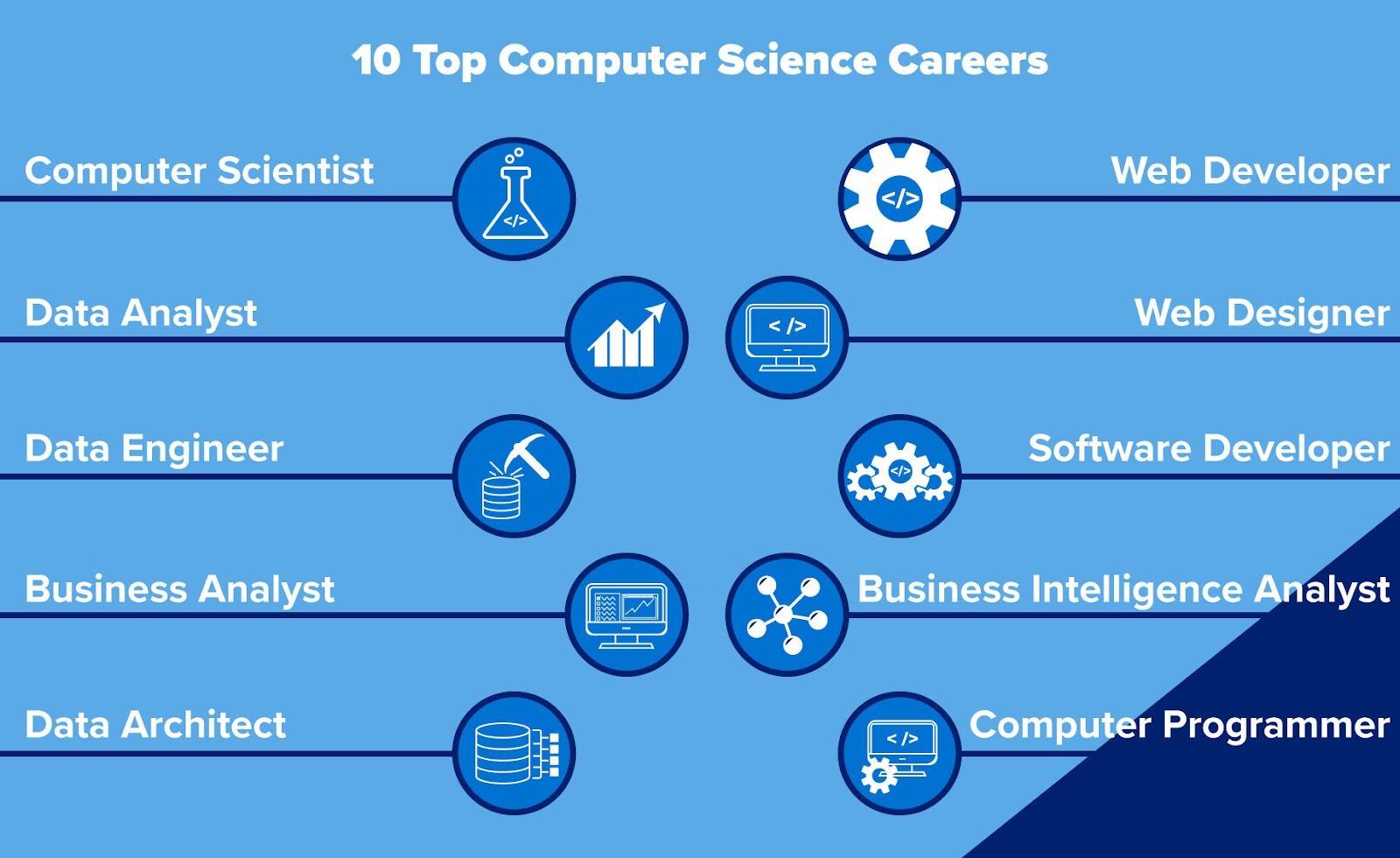
After completing the necessary education, computer scientists typically enter the workforce in positions such as software engineers, database administrators, systems analysts, or network engineers. With experience and further education, computer scientists can advance their careers to become software architects, senior software engineers, or IT directors.
What’s a Typical Career Path for a Software Engineer?
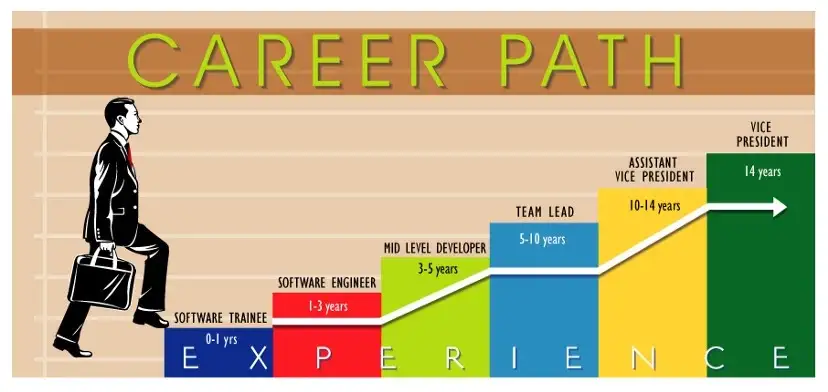
Software engineers typically gain experience through internships or entry-level jobs at software companies. They might then move into more advanced roles such as senior software engineer, architect, or project manager. With more experience, they can eventually progress to more senior roles, such as chief technology officer or chief information officer.
Other Jobs To Consider
If you’re interested in software engineering or computer science but aren’t sure which one will be the right fit for you, then keep reading.
What Jobs Can I Apply for With a Degree in Computer Science?
A person with a computer science degree can apply for several different jobs. They may work for a tech company, the government, or another organization that uses technology. Some of those may include:
- Software Developer: A software developer is a person who writes code for computers and programs, as well as writes and tests algorithms.
- Computer Systems Analyst: A computer systems analyst is a person who designs and implements new hardware or software systems for data science companies or government agencies.
- Systems Administrator: A systems administrator manages the hardware, software, and networks of an organization, making sure that everything runs smoothly.
- Information Security Analyst: An information security analyst protects company data by monitoring networks for harmful activity, such as hacking attempts or viruses that spread through email attachments.
What Jobs Can I Apply for With a Degree in Software Engineering?
A person with a software engineering degree can apply for jobs in many different fields, but here are a few of the most common:
- Systems engineer: This job is similar to that of a software developer, but it requires more experience and knowledge of how software interacts with hardware.
- QA engineer: Quality assurance engineers test new software products and make sure they meet quality standards before release.
- Architect: Architects design systems from top to bottom, including all aspects of their creation and maintenance. They work closely with developers to ensure their designs are implemented effectively and efficiently.
Should I Pursue Computer Science or Software Engineering?

Here are some things to consider if you’re trying to decide between computer science and software engineering.
Who Should Pursue Computer Science?
Computer science is an excellent choice for anyone who enjoys problem-solving, logic, and creativity. It’s an ideal major for people who want to pursue a career in programming, and also a good fit for those who enjoy working with computers and technology.
Who Should Pursue Software Engineering?
As a software engineer, you’ll be responsible for designing and building computer programs to meet your company’s needs. Software engineers need to be able to think logically and creatively, as well as communicate effectively with both technical and non-technical teams. This can make them great leaders in their field, but software engineers also have many opportunities to focus on specific projects without having much direct management responsibility.
How To Choose Between Computer Science and Software Engineering

If you’re thinking about choosing between computer science and software engineering as a career path, it can take a lot of work to know where to start. To help you make that decision, here are some factors to consider.
Scope of Work
Computer science and software engineering have some overlap, but the two fields are distinct. Software engineers focus on designing and building software that meets the needs of its users. Computer scientists are more interested in understanding how computers work and developing new technologies that can be applied to a wide range of industries.
If you want to work with computers in a more technical way, computer science may be a better fit for you.
Your Interest
Computer science may be right for you if you’re interested in programming, designing software systems, or solving problems using computers. If your interests lie more with business or design than technology, software engineering could be a better fit.
Career Objectives
Another way to decide between these two career paths is by considering what kind of job you want at the end of your studies.
Computer scientists might be interested in research or being part of a team that builds software systems. Software engineers focus more on applications than theoretical concepts like algorithms or complexity theory.
For example, if your dream job involves making games, then software engineering might be the better fit because game development requires less emphasis on complex mathematical principles than some other kinds of software engineering jobs (such as those involving artificial intelligence).
Consider a Mentor
Learning software engineering with a mentor is always beneficial. Ask them about the pros and cons of working in that field. You’ll benefit from hearing an insider’s perspective on what it takes to succeed in this line of work and get some great advice about how to do it.
Computer Science vs. Software Engineering FAQs
We’ve got answers to some of your most frequently asked questions:
Can I Become a Software Engineer With a Computer Science Degree?
Yes, you can become a software engineer with a computer science degree. Software engineers typically have a degree in computer science, software engineering, or a related field.
Is Software Engineering Easier Than Computer Science?
It depends on the individual’s skills and experience. Software engineering is often more practical than computer science, so it may be easier for some people who have more experience with coding and software development.
On the other hand, computer science is a much broader field and can involve a wider range of topics, such as algorithms, data structures, and artificial intelligence.
Ultimately, the difficulty of either field will depend on the individual’s background and experience.
Which Is Harder To Study, Computer Science or Software Engineering?
Computer science and software engineering are both important and rewarding majors to pursue. However, their relative difficulty depends on your background, career goals, and interests.
Since you’re here…
Interested in a career in software engineering? Join our mentor-led Software Engineering Bootcamp or our foundational Software Engineering Course if you’re just starting out. We help people make the switch every day (just peep our reviews). You can do it, too!





